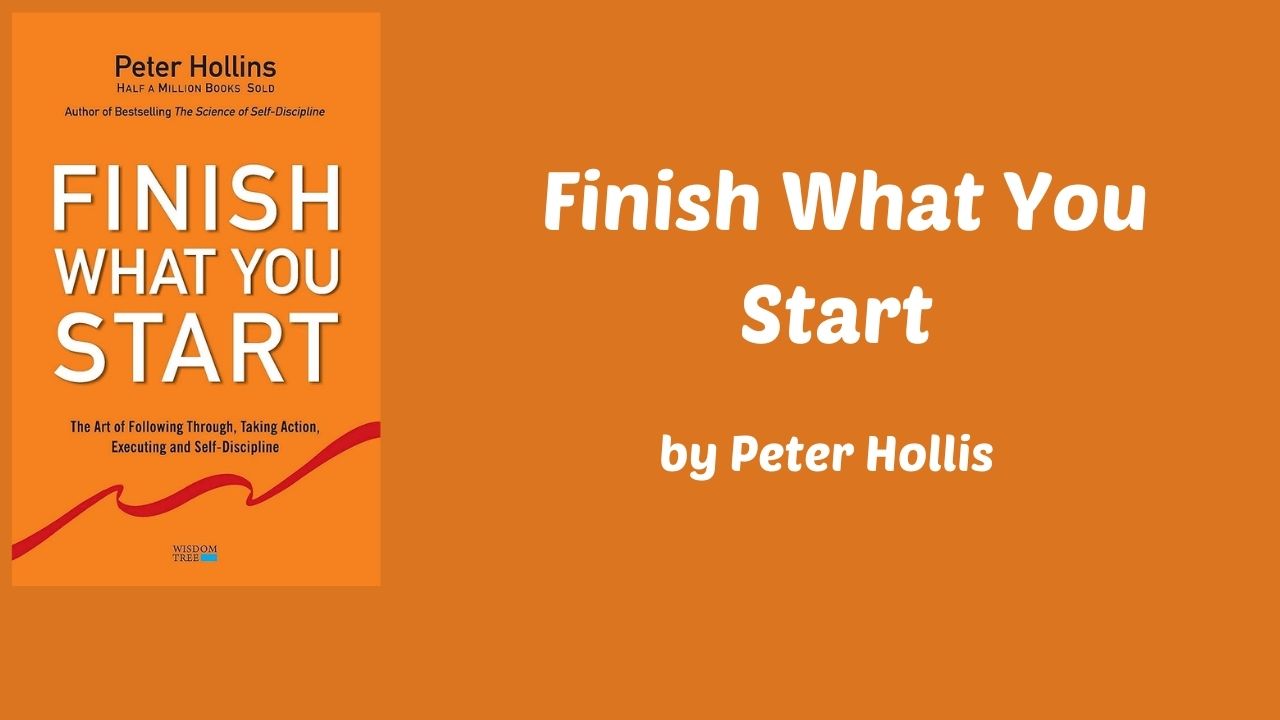
Finish What You Start#
15 Lessons From The Book Finish What You Start: The Art Of Following Through, Taking Action, Executing, & Self-Discipline (Live A Disciplined Life) By Peter Hollis:
- The power of starting and finishing. Completing tasks, both big and small, leads to a sense of accomplishment, boosts confidence, and propels you forward.
- Understanding your procrastination triggers. Identify the situations, emotions, or thoughts that lead you to procrastinate and develop strategies to overcome them.
- Harnessing the power of tiny habits. Start small and build gradually. Consistent, small actions accumulate into significant progress over time.
- The importance of setting clear goals and deadlines. Define what you want to achieve, break it down into manageable steps, and set realistic deadlines to stay on track.
- The role of self-discipline and self-motivation. Cultivate self-discipline by establishing routines, creating a distraction-free environment, and rewarding yourself for progress.
- The art of overcoming resistance and excuses. Acknowledge resistance, challenge negative self-talk, and replace excuses with empowering affirmations.
- The value of systems and processes. Develop repeatable systems and processes to streamline tasks, reduce decision fatigue, and increase efficiency.
- The power of accountability and support. Find an accountability partner or group to stay motivated, receive feedback, and celebrate milestones together.
- The importance of learning from setbacks and failures. View setbacks as opportunities for growth, analyze what went wrong, and adjust your approach accordingly.
- The role of self-awareness and emotional management. Understand your emotional triggers and develop strategies to manage stress, anxiety, and other emotions that hinder progress.
- The power of a positive mindset and visualization. Cultivate a positive outlook, visualize success, and believe in your ability to achieve your goals.
- The importance of taking breaks and recharging. Schedule regular breaks to prevent burnout, engage in activities that bring you joy, and prioritize your well-being.
- The value of continuous learning and improvement. Continuously seek knowledge, develop new skills, and refine your strategies to enhance your ability to finish what you start.
- The importance of celebrating successes and milestones. Recognize and celebrate your achievements, no matter how small, to reinforce positive behavior and maintain motivation.
- The art of living a disciplined life. Integrate self-discipline into your daily routine, make it a habit, and enjoy the sense of accomplishment and fulfillment that comes from following through on your commitments.
BOOK: https://amzn.to/3uIQDwU


Comments: